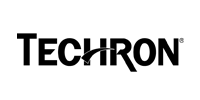Ensure optimal performance and longevity for your Marine engine with Taro Ultra


Lubrication is the lifeblood of an engine. Today’s lubricating oils for modern diesel engines are designed to provide adequate lubrication under varying temperatures and operating conditions. They keep the engine clean and provide protection against chemical corrosion from acidic combustion products.
In order to achieve this, important properties are “added” to the lubricating oil by means of alkaline additives often referred to as detergents and dispersants.
Choosing the right lubricant
The oil-soluble bases, such as calcium sulfonates and calcium phenates stop the particles from coagulating and keep them in suspension. Selecting the correct BN for a diesel engine lubricant depends on many aspects such as engine design, specific application in the engine, and sulphur content of the fuel. The type of fuel applied also plays a major role in this decision.
Choosing the Right Lubricant for Your Marine Engine
Why Taro Ultra?
Taro Ultra 40 is a 40 Base Number (BN) cylinder lubricant that is designed for lubricating the latest generation two-stroke / slow-speed crosshead diesel engines running on low sulphur fuels under all loads and operating conditions. It is blended with highly refined base oils and carefully chosen additives to provide excellent ring and liner wear protection and piston cleanliness in slowspeed crosshead diesel engines.
What Taro Ultra offers is engine protection, ensuring protection against excessive cylinder liner and piston ring wear, thus allowing prolonged service intervals. It also provides engine cleanliness by preventing ring sticking and minimizing deposit formation on the pistons and throughout the combustion chamber exhaust areas. Above all, it provides storage stability by being stable at ambient temperature and during long-term storage and is compatible with diesel cylinder lubricants generally known to the international marine trade.





























